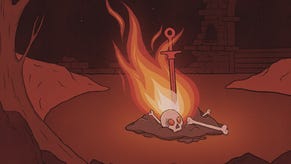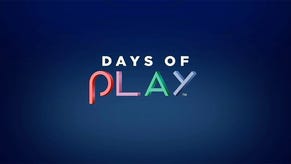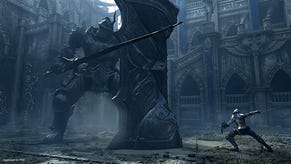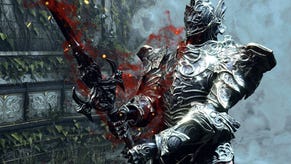Games of 2009: Demon's Souls
Loss leader.
With such astonishingly harsh punishment meted out at every opportunity, it's clear the game wants you dead, so the problem becomes learning how to fail. We're not used to much failure in games these days, and the extent of it in Demon's Souls can be hard to accept if you're used to recharging health, auto-checkpointing and forgiving difficulty.
It sounds insane to get so excited about a game so resolutely old-school in its mercilessness, but you find you can because any and all failure is your fault. I must have died several hundred times over the 50 hours I've sunk into Demon's Souls, but not once did I ever blame the game for doing something 'cheap'. Perversely, such crushing failures only hardened my resolve to go back and do better.
Perhaps the main reason for this is the fact that the process of 'doing better' is extremely rewarding over time. There can't be too many games where trudging through the same portion of the same level is still as enjoyable 30 attempts later, but the degree of satisfaction you glean from eventually kicking the arse of everything that got in your way is something few games offer.
Another curious element of Demon's Souls' appeal is the fact it rarely tells you anything helpful - so much so, in fact, that it almost feels deliberately designed to inspire a community to help each other out. First of all, the game allows players to write messages for one another on the ground to warn of trouble ahead, while bloodstains offer an insight into how other players met their end via an animation of their last few seconds.
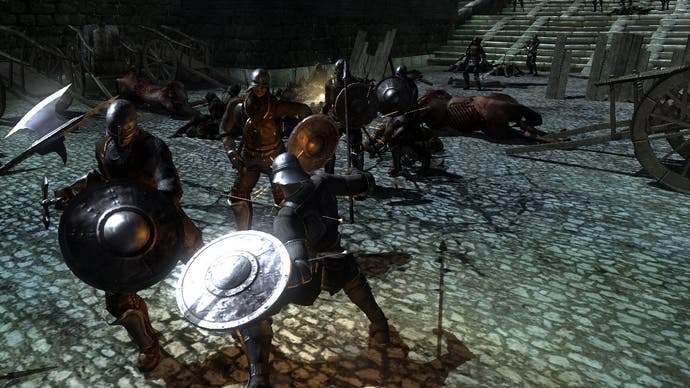
But as wonderful as these ideas are, they sure as hell don't help you find out which class is best to choose, how best to upgrade, where the essential weapons and armour reside, or who best to give your Demon's Souls to. Without the community Wiki to lend a hand in those dark moments the game would be a complete bitch to figure out. Rather than take away the surprise element, the Wiki enhances Demon's Souls, as the experiences and trials of fellow travellers, catalogued on the internet, come to your aid. No surprise, then, that the deluxe US version shipped with a 160-page guide.
Even 50 hours in, I'm not done yet. Having become slightly less rubbish at the game and levelled up to a semi-acceptable rank, I'm starting to roam around in body form more often than before, and experiencing the joys of Black Phantoms - other players forcing themselves into my world in order to battle me and bring themselves back to life in their own game. Brilliantly, not all of them are here to grief, either, with some helping me clear entire sections before bowing and making their exit. Blue Phantoms, meanwhile, introduce a superb co-op element.
The fact I'm still not done with Demon's Souls, and the fact that so many people seem happy to play the game through over and over again, demonstrates the quality of the core gameplay. Far from making the game predictable, repetition reveals more layers and, more importantly, ensures you get better.
The question for many Demon's Souls addicts now is whether this uniform critical appreciation will eventually secure a European release, but with region-free gaming making its non-appearance less of an issue there's every chance that prospective publishers will assume its niche audience has long since imported it. In other words, if you're one of those people who has held out on buying it so far, don't wait: there really is no excuse not to get one of the landmark games of the generation, if not the decade.
It won't be an easy ride, but then by the end of it you'll be glad that it wasn't.
Check out the Editor's blog to find out more about our Games of 2009.



